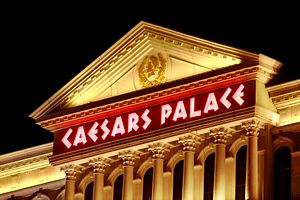Perhaps South Korea, not Japan, will become Asia’s next gaming destination.
In a bid to boost regional tourism, South Korea issued a preliminary casino license to Las Vegas-based Caesars Entertainment Corporation and Hong Kong-based investment firm Lippo Limited. The joint venture will construct an $805 million resort complex on Yeongjong island, just minutes from Incheon International Airport, with the goal of attracting the wealthy Chinese gamblers who frequent well-established casinos in Macau and Singapore.
The preliminary construction, approximately 50 kilometers west of the capital Seoul, will feature a casino and two hotels. It is set to be operational by the time South Korea hosts the 2018 Winter Olympics in Pyeongchang.
According to Reuters, it is the first time that a foreign venture has been granted a preliminary casino license. Caesars and Lippo will spend a total of $2.1 billion over nine years to develop the property.
South Korea already hosts 16 “foreigner-only” casinos. Korean citizens who wish to try their luck at poker or roulette must travel to the remote Kangwon Land resort or fly to a neighboring country that allows gambling. The newest development on Yeongjong isn’t meant for domestic players; rather, it is targeting Chinese who have lost interest in an increasingly expensive Macau.
“The average bet size in Macau exceeded $250 in July last year – a fourfold increase from two years earlier – reflecting rising minimum bid levels as Macau casinos seek to focus on the wealthiest gamblers,” said the Financial Times. “South Korean casinos are more welcoming to Chinese gamblers who are wealthy but fall outside the high-rolling elite, offering them premium treatment with lower minimum bets. In their ‘VIP’ rooms, the average Chinese party bets about $40,000 per person, compared with $400,000 in Macau.”
Last year, Macau’s casino revenue was approximately $45 billion. In 2012, South Korea earned only $1.1 billion. That figure, while a fraction of Macau’s, represents a marked increase from the $650 million South Korea made from gambling in 2007 and points to the industry’s potential for growth.
Caesars is especially keen to reenter the Asian casino market. The industry has boomed in recent years. Regional powerhouse Las Vegas Sands saw its share price rise more than 2100 percent in the last five years alone. Caesars, on the other hand, sold off its Macau holdings last August to pay down some of its $27 billion debt. The South Korean casino could breathe new life into the struggling firm.
Like Sands, Caesars is also interested in the possibility of Japanese regulators legalizing gambling ahead of the 2020 Tokyo Olympics.
In February, Genting Singapore – Southeast Asia’s largest casino operator by market share – announced the construction of a $2.2 billion entertainment complex on South Korea’s Jeju island. The project, in partnership with Chinese property developer Landing International, will include a casino, theme park, shopping malls and apartments.
On top of world-class casinos, South Korea is also building a $660 million robot-themed amusement park near the site of the tentatively planned Caesar’s casino.

































